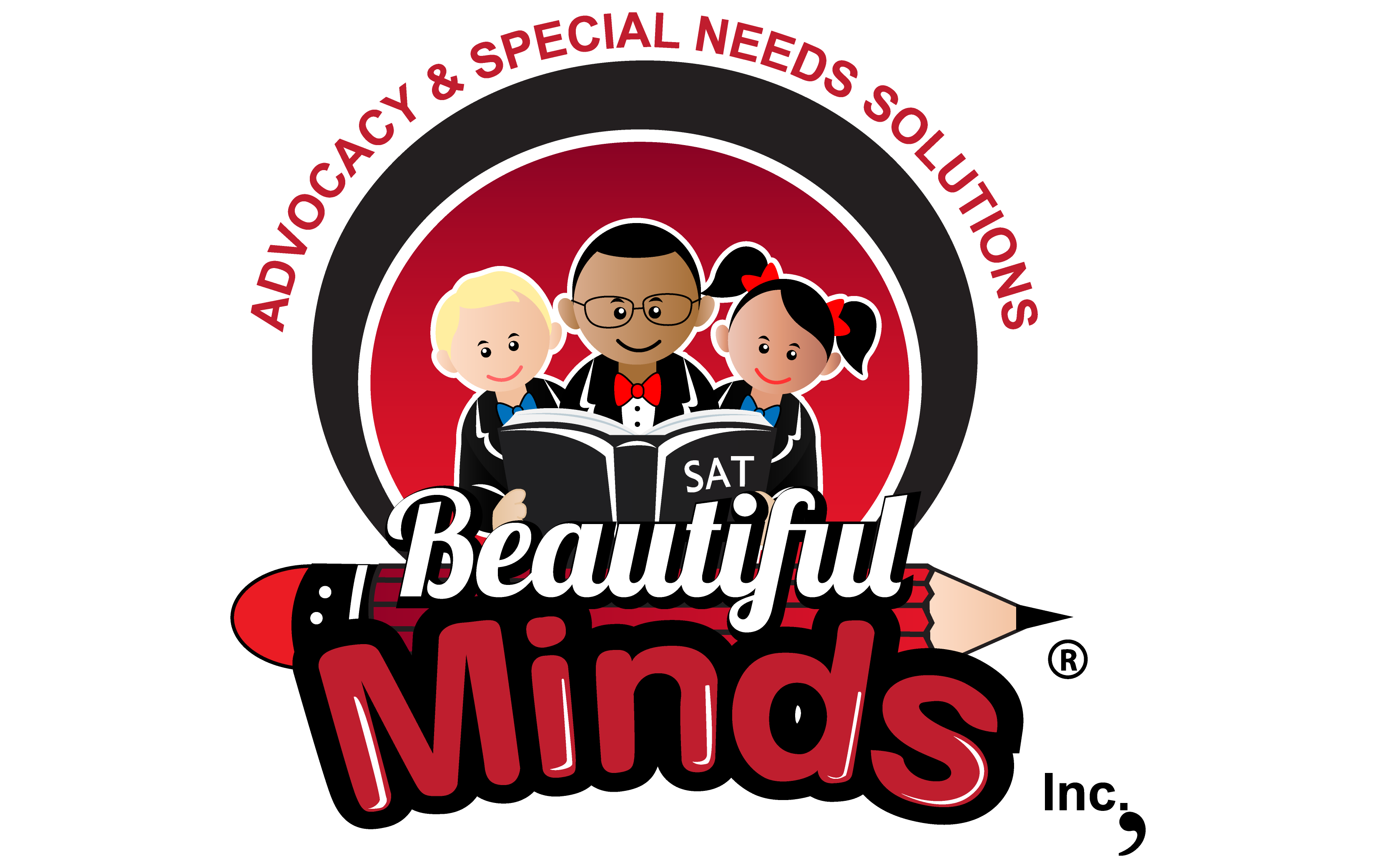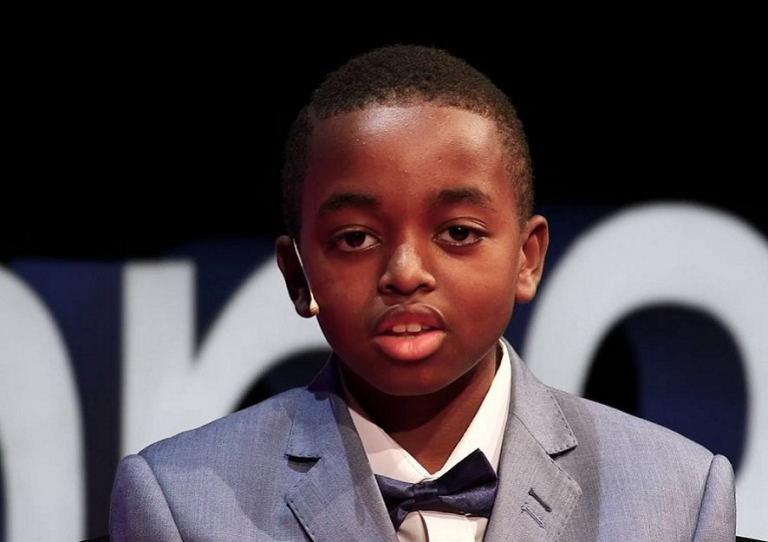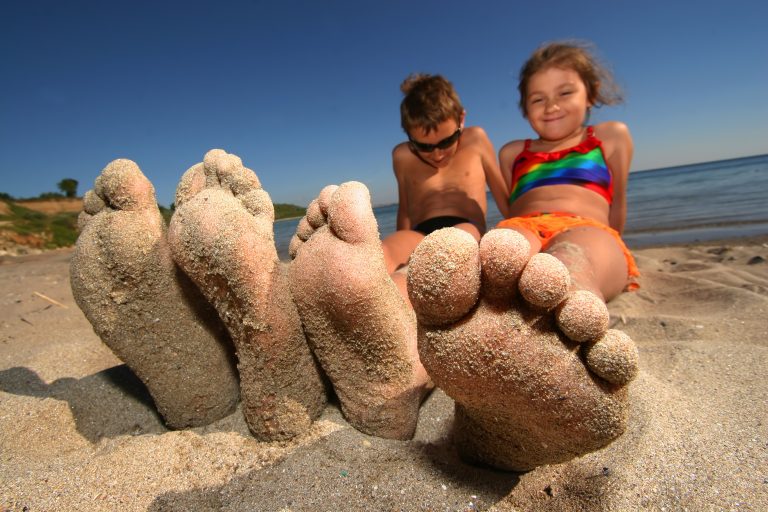At age six, most young children are entering first grade, but not for the extraordinary Joshua Beckford.
Living with high-functioning autism, the child prodigy from Tottenham was, at the age of six, the youngest person ever to attend the prestigious Oxford University.

But he has his father to thank for this incredible feat. At just 10 months old, Beckford’s father, Knox Daniel, discovered his son’s unique learning capability while he was sitting on his lap in front of the computer.
With the keyboard being the child’s interest, Daniel said: “I started telling [Joshua] what the letters on the keyboard were and I realized that he was remembering and could understand.”
“So, if I told him to point to a letter, he could do it… Then we moved on to colours,” Daniel added.

At the age of three, Beckford could read fluently using phonics. He learned to speak Japanese and even taught himself to touch-type on a computer before he could learn to write.
“Since the age of four, I was on my dad’s laptop and it had a body simulator where I would pull out organs,” said Beckford.
In 2011, his father was aware of a programme at Oxford University that was specific to children between the age of eight and thirteen. To challenge his son, he wrote to Oxford with the hopes of getting admission for his child even though he was younger than the age prescribed for the programme.
Fortunately, Beckford was given the chance to enroll, becoming the youngest student ever accepted. The brilliant chap took a course in philosophy and history and passed both with distinction.

Beckford was too advanced for a standard curriculum; hence he was home-schooled, according to Spectacular Magazine.
Having a keen interest in the affairs of Egypt throughout his studies, the young genius is working on a children’s book about the historic and ancient nation.
Aside from his academic prowess, Beckford serves as the face of the National Autistic Society’s Black and Minority campaign. Being one with high-functioning autism, the young child helps to highlight the challenges minority groups face in their attempt to acquire autism support and services.
Last month, the wonder child was appointed Low Income Families Education (L.I.F.E) Support Ambassador for Boys Mentoring Advocacy Network in Nigeria, Uganda, Ghana, South Africa, Kenya and the United Kingdom.

BMAN Low Income Families Education (LIFE) Support was established to create educational opportunities for children from low-income families so that they have a hope of positively contributing to a thriving society.
Beckford will further hold a live mentoring session with teenagers and his father, Daniel, will facilitate a mentoring session with parents at the Father And Son Together [FAST] initiative event in Nigeria in August 2019.
In 2017, Beckford won The Positive Role Model Award for Age at The National Diversity Awards, an event which celebrates the excellent achievements of grass-root communities that tackle the issues in today’s society.

Described as one of the most brilliant boys in the world, Beckford also designs and delivers power-point presentations on Human Anatomy at Community fund-raising events to audiences ranging from 200 to 3,000 people, according to National Diversity Awards.
For a super scholar whose brain is above most of his peers and even most adults, Beckford, according to his father, “doesn’t like children his own age and only likes teenagers and adults.”

Parenting a child with high-functioning autism comes with its own challenges, his father added.
“[Joshua] doesn’t like loud noises and always walks on his tip toes and he always eats from the same plate, using the same cutlery, and drinks from the same cup,” he said.
He is, however, proud of his son’s achievements and believes he has a bright future ahead.
“I want to save the earth. I want to change the world and change peoples’ ideas to doing the right things about earth,” Beckford once said of his future.
By: Dr. Ifeanyi Ufondu, Ph.D
The school bell may stop ringing, but summer is a great time for all kinds of educational opportunities. Children with learning disabilities particularly profit from learning activities that are part of their summer experience — both the fun they have and the work they do.
Beautiful Minds Inc. found Dr. Ifeanyi Ufondu, Ph.D. has packed this virtual Beach Bag of activities for teachers to help families get ready for summer and to launch students to a fun, enriching summer.
In the virtual Beach Bag you’ll find materials you can download and distribute, but you’ll also find ideas for things that you may want to gather and offer to students and parents and for connections you’ll want to make to help ensure summer learning gain rather than loss.
– Put an article on strategies for summer reading for children with dyslexia in your school or PTA newsletter. Send it home with your students to the parents.
If many of your students go to summer camp, send the parents When the Child with Special Needs goes off to Summer Camp an article by Rick Lavoie which tells parents what to do to support their children during camp.
– Teach them an important skill they can use over the summer. Read Teaching Time Management to Students with Learning Disabilities to learn about task analysis, which families can use to plan summer projects.
– Make sure your students are able to read over the summer — put books into children’s hands. Register with First Book and gain access to award-winning new books for free and to deeply discounted new books and educational materials.
– Tell your parents about Recording for the Blind and Dyslexic, which allows their children to listen to books over the summer.
– Encourage writing. Send The Writing Road home to your parents so they can help their children. Give each of your students a stamped, addressed postcard so they can write to you about their summer adventures.
– Get your local public library to sign kids up for summer reading before school is out. Invite or ask your school librarian to coordinate a visit from the children’s librarian at the public library near the end of the school year. Ask them to talk about summer activities, audio books, and resources from the National Library for the Blind and Physically Handicapped. Have them talk about summer activities at the library and distribute summer reading program materials.
– Study reading incentive programs by publishers and booksellers such as Scholastic’s Summer Reading Buzz, HarperCollins Children’s Books Reading Warriors, or the Barnes & Noble Summer Reading Program. If you think these programs will motivate your students, let the families know about them. Find ways to make accommodations so they can participate if necessary.
– Offer recommended reading. LD OnLine’s Kidzone lists books that are fun summertime reads. The Association for Library Services to Children, a division of the American Library Association, offers lists for summer reading. Or ask your school or public librarian for an age-appropriate reading list.
– Encourage your parents to set up a summer listening program which encourages their children to listen to written language. Research shows that some children with learning disabilities profit from reading the text and listening to it at the same time.
– Offer recommendations for active learning experiences. Check with your local department of parks and recreation about camps and other activities. Find out what exhibits, events, or concerts are happening in your town over the summer. Encourage one of your parents to organize families of children with learning disabilities together for learning experiences.
Dr. Ufondu also desires for parents to plan ahead. Work with the teachers a grade level above to develop a short list of what students have to look forward to when they return to school in the fall. Many kids with learning disabilities will want to study over the summer so that they can get a head start.
Parenthood is a rich journey. When you add special needs into the mix, the parenting experience is amplified, adding poignancy and humor. Here are a few observations from my tenure in special needs parenting.
1. Showers are a double-edged sword. You never know when the kids will bust into the bathroom to show you the new color they painted the dog. Or sometimes they actually leave you alone and you take your time savoring the peace, knowing that you’re gambling between finding all well or discovering that they have managed to get past the lock, deadbolt, chain and alarm on the outside door, and you’ll find them marching down the street in their PJs with several neighbors following them in their cars in an impromptu parade.

2. Somehow the child whose occupational therapist reports low finger strength and coordination can manage to unlock every device known to humankind and elope out the front door.
3. A hearing-impaired child can somehow hear you open your secret chocolate stash from three rooms away.
4. You are well acquainted with the strange blend of pride and chagrin that occurs when your child with cognitive impairment outsmarts you.
5. Social media isn’t just an outlet, it’s a lifeline. Some of your closest confidants and dearest friends live in your computer. When you see them in real life you can pick right up on conversations even if it’s been three years since the last time, but there are plenty you have never met. They are scattered across the country and world, but you share a sacred connection, and they are like family.
6. A good night’s sleep is your Holy Grail. You have heard that such a thing exists, and the notion is intoxicating. You pursue it as your life’s mission only to find it always elusive. Though many still claim it exists, you’re beginning to believe it’s merely a myth.

7. You wish there was a way to Teflon-coat feelings. Whether it’s the sting of a stranger’s look or comment, the frustration of unsolicited advice, or the observation of a professional that hits too close to home, a magical elixir that would wash away the bite of the world would be heavenly.
8. You have more wisdom, depth and strength than you ever imagined possible. Your parenting experience has stretched and challenged you, and you have risen to the occasion on behalf of the child who stole your heart.
9. Your typical child(ren) have richness of compassion and empathy and value all people for who the are.
Dr. Ifeanyi Ufondu is Founder and Owner of Beautiful Minds Inc.- Advocacy & Special Needs Solutions. He is America’s leading Special Needs Advocate and is currently based in Dallas, TX.



